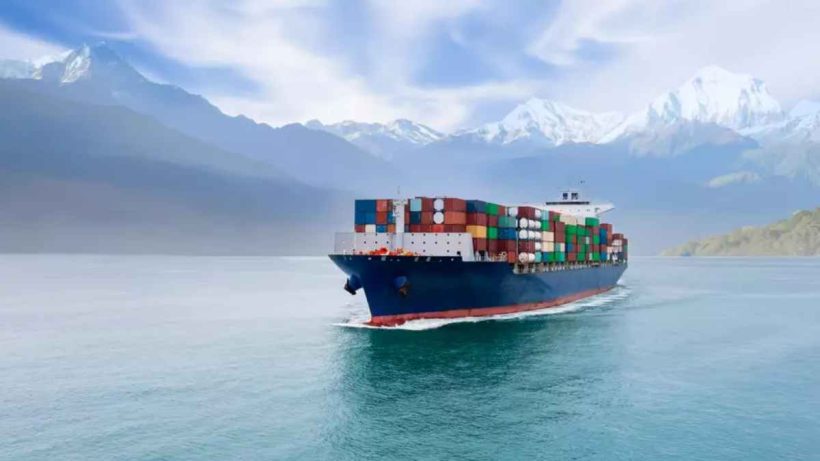In the last few years, there have been growing concerns about the maritime sector’s reliance on fossil fuels. Marine operators, owners, businesses and seafarers alike already have the motivation to take action when it comes to the environment. However, the current course of action is insufficient. If the maritime sector wants to address rising carbon emissions, serious action is required. This is where sustainable ship management may be the solution.
In essence, the marine sector is a vast, autonomous ecosystem made up of a variety of organisations that work together when necessary to achieve a common goal. Decisions are shared among the key stakeholders functioning within this ecosystem – however, there is no single leader who decides the path of this ecosystem. As a result, adaptation is not centralised but rather in response to the demands of each partner.
If the industry intends to decarbonise by 2050, as put forth by the International Maritime Organization (IMO), businesses across the maritime sector must work together. From alternative fuels to green corridors, there are several developments on the horizon that could transform the industry. Sustainable ship management has the potential to put additional pressure on other key stakeholders in the maritime sector, as well as businesses operating in other major industries such as transportation. As a result, it could serve as the catalyst the world needs to finally decarbonise as a whole.
What is sustainable ship management?
Ship management, as the name implies, is the management of maritime vessels by a ship management company on behalf of a private owner or maritime business. Ship management companies will handle the management and maintenance of ships and other marine vessels, making ship management an essential part of the global economy. This is because ship management companies will also oversee and manage the services connected with a vessel, including the transportation of important cargo.
In recent years, the concept of sustainable ship management has become increasingly popular. Much like traditional ship services, sustainable ship management still involves the management of maritime vessels on behalf of owners/operators – however, as the name suggests, sustainable ship management implements more environmentally friendly practices and processes day-to-day.
The future
Ship management is a vital service in the marine industry. This is because it plays a crucial role in shipping and freight. Ship management services also allow both private and commercial owners/operators to delegate operational responsibility and maintenance of their vessels to a single, experienced ship management company. This means day-to-day operations for all parties are more straightforward, effective and affordable.
As a result, when it comes to decarbonising the maritime industry, it makes little sense to simply put a stop to operations. This is because the services provided by ship management companies play a pivotal role in the global economy – without the solutions provided by ship management companies, several economies around the world would collapse and devastate society as we know it. Therefore, it makes more sense to simply implement more sustainable practices day-to-day that aims to decarbonise the sector step-by-step such as investing in alternative fuels or even green corridors.
Alternative fuels
While several sustainable innovations are under development, the industry is essentially going through a transitional phase, for example from traditional fuel to alternative fuels. For example, fuels that are naturally carbon-free, including hydrogen and ammonia, are being developed to serve as the foundation for zero-carbon shipping. Both fuels can be utilised in fuel cells or internal combustion engines, and neither fuel emits any CO2 when it is sourced sustainably.
Ammonia in particular is one of the most commonly used compounds in the world and has the potential to serve as a zero-carbon fuel for shipping. However, because of its toxicity and caustic qualities, its use poses several safety issues. These problems will ultimately be resolved by regulatory requirements and mitigation techniques.
Green corridors
A green corridor is the decarbonisation of a particular marine route. As ports are an essential part of the marine supply chain, decarbonising individual ports has the potential to speed up the process and give the maritime industry the infrastructure it needs to store alternative fuels as well as crucial inland supplies. Doing so would encourage owners/operators to invest in more eco-friendly technologies.
Collaborating consistently in the maritime industry can be difficult, particularly in terms of innovation and transformation. There are various factors involved in decarbonizing operations in the sector, making it challenging. Companies operating within the industry must work together, aligning their strategies and goals to ensure they are cohesive. Green corridors could be a solution. By implementing them, hesitant owners/operators may be pressured to invest in greener and sustainable technologies.
Final thoughts
In the maritime sector, there is growing concern over environmental sustainability and dependence on fossil fuels. Despite the willingness of many owners, operators and seafarers to take action, the existing efforts are insufficient. To significantly reduce carbon emissions, the industry must adopt more drastic measures. All sectors must move swiftly and cooperatively to reduce carbon emissions and embrace sustainable strategies to lessen our influence on the environment and address climate change.
The maritime industry is extremely important to the global economy, acting as a giant gear in a well-oiled machine and the backbone of international trade. However, in the last few years, there have been growing concerns about the maritime sector’s reliance on fossil fuels. If the maritime industry is to address rising carbon emissions, drastic action must be taken. This is where sustainable ship management may be the solution.
In many ways, the maritime sector is already prepared to progress towards decarbonisation. Innovators from across the sector have established a host of options for the decarbonisation of the maritime industry – the next step will be to scale up the new technologies for widespread use across the sector.
Laila Azzahra is a professional writer and blogger that loves to write about technology, business, entertainment, science, and health.
